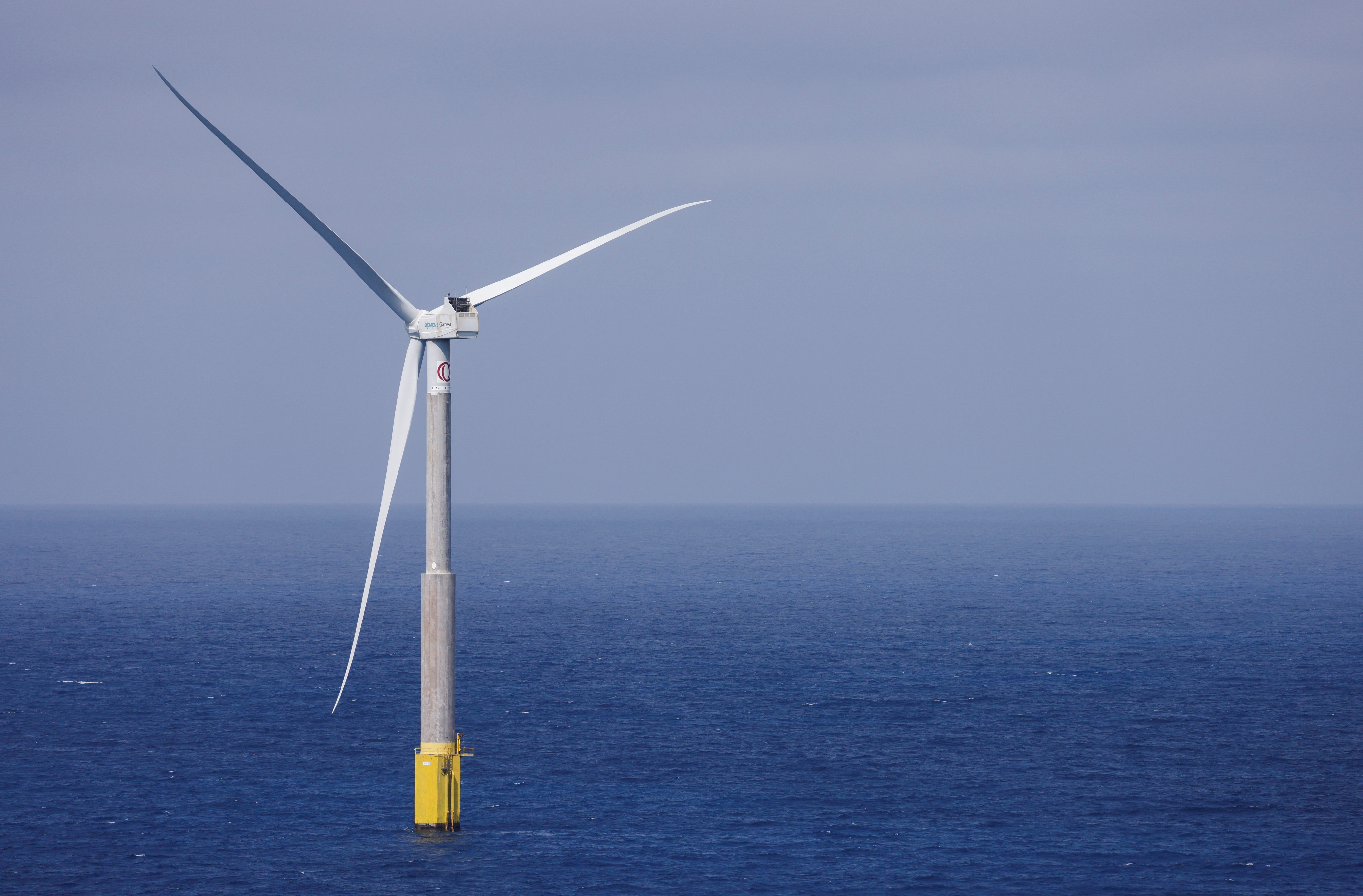[ad_1]

An offshore wind turbine of the Siemens Gamesa company is seen from the Telde coast on the island of Gran Canaria, Spain, May 2, 2022. REUTERS/Borja Suarez/File Photo Acquire Licensing Rights
BERLIN, Oct 27 (Reuters) – German Chancellor Olaf Scholz on Friday called Siemens Energy (ENR1n.DE) “very important” and the economy ministry said it was conducting “intensive talks”, statements that came as the company’s shares halted their plunge on news that it was seeking state guarantees.
The power engineering company has suffered big setbacks at its wind unit, the world’s largest, and said on Thursday it was in talks about aid, spooking investors.
“Siemens Energy is a very important company. This is without question”, Scholz said, describing the talks as “good” and declining to elaborate.
The economy ministry described the talks as “intensive”, but would not elaborate on details or a timeline.
Quality problems emerged this year at the company’s wind unit Siemens Gamesa centred on rotor blades and gears in newer onshore wind turbines, drawing the ire of top shareholder and former parent Siemens AG (SIEGn.DE). Siemens Gamesa has booked billions in related losses.
Siemens Energy Chief Executive Christian Bruch has been under pressure to present a convincing turnaround plan for Siemens Gamesa after detailing the far-reaching problems just a few months after assuming full ownership of the division.
Siemens Energy has considered shutting down some Siemens Gamesa factories and sales offices as part of a review aimed at trimming losses.
“The German government is aware that Siemens Energy is a transformationally relevant company for Germany as a business location,” another government spokesperson said.
Shares of Siemens Energy were up 9.6% at 1325 GMT after tumbling more than 35% on Thursday, a move that wiped about 3 billion euros ($3.17 billion) off the company’s market capitalisation.
A leading German economist criticised the prospects of state aid.
Clemens Fuest, president of the Ifo economic institute, told Reuters there was “no convincing justification”.
“The support means a transfer of taxpayers’ money to Siemens Energy’s creditors and shareholders, who should actually be liable. It’s up to the creditors and shareholders to restructure the company,” Fuest said.
Juergen Molnar, an analyst with broker RoboMarkets, advised investors to avoid Siemens Energy shares, “with or without government aid”.
“If there is a sore point for investors at the moment, it is problems with financing. With the rise in interest rates, even a good business model can quickly end up in the red,” he said.
($1 = 0.9469 euro)
Reporting by Christian Kraemer, Andreas Rinke, Zuzanna Szymanska, and Miranda Murray; writing by Tom Sims, Editing by Sharon Singleton and Tomasz Janowski, Kirsten Donovan and Jonathan Oatis
Our Standards: The Thomson Reuters Trust Principles.
[ad_2]
Source link
